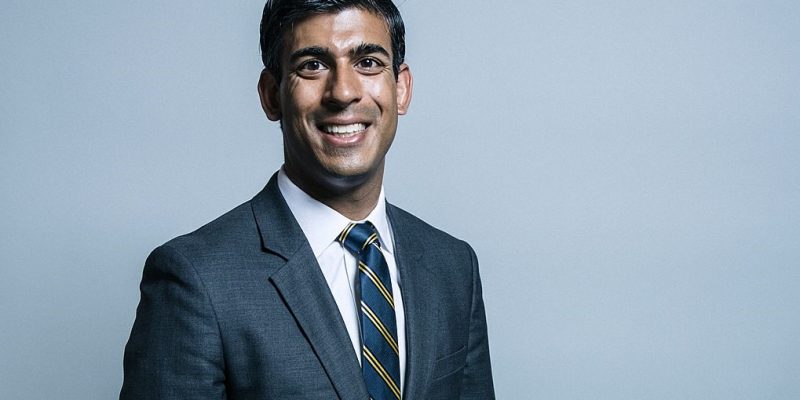A leading economist has told Buzz News that a mooted potential increase in corporation tax by Rishi Sunak is “not going to put a dent in our serious and growing wealth inequality problems” as the Chancellor prepares to deliver his latest Budget.
Gary Stevenson, a former stock trader who now researches and commentates on the economics of inequality, said that despite a rise in corporation tax being “a sensible, obvious move”, additional measures ought to be enacted.
Mr Stevenson’s comments came as new figures revealed public sector debt last December totalled 99.4% of the entire economy, while government borrowing in the month was the third-highest since records began, at £34.1 billion.
The national debt has now reached £2.1 trillion as the government continues to support millions of jobseekers, furloughed workers and shuttered businesses amid the third national lockdown.
View Buzz infographic: Paying For The Pandemic
Chancellor Sunak has expressed an intention to “return the public finances to a more sustainable footing” and is reportedly weighing up the announcement of a significant increase in corporation tax from 19% to as high as 23% in his Budget announcement due on March 3rd.
But Mr Stevenson, who became Citibank’s most profitable trader worldwide in 2011 after predicting that there would be no swift recovery from the 2008/9 recession, called for the introduction of “taxes that specifically target the very rich who are benefitting from this crisis.”
He said: “High-income people already pay high tax, and in some instances could pay more, but it is more the super-wealthy billionaire and multi-millionaire families that I think should be targeted, rather than working people.”
Mr Stevenson was not supportive of possible increases in Value Added Tax (VAT) and fuel duty, which already constitute one fifth of UK tax revenue.
“VAT is a very regressive tax, hitting poor and ordinary people the worst. It is definitely not the best way to deal with the current problems. Fuel duty of course could have positive environmental effects, but ultimately suffers the same problems”, he said.
A Buzz News poll of UK voters found that almost half (48%) of respondents believed corporation tax should be raised first, while 16% said that income tax should be increased instead. 13% preferred a hike in fuel duty.
The United States has introduced ‘stimulus cheques’ paid to every eligible citizen to keep its own economy moving, but Mr Stevenson – who tweets economic commentary from his @GarysEconomics Twitter account and makes frequent appearances on BBC Radio and LBC – expressed doubts about an adoption of the approach in the UK.
He said: “Support should be focussed on those most in need who have suffered the most, like the people who have lost their jobs or slipped through the cracks of government support schemes.”
“A stimulus cheque or universal [basic] income might well be popular, but it is probably not the ideal way to deal with a crisis that has been very unequal in its effects”, he added.
Case Study #1 – “The middleman always gets clobbered”
‘Etcetera’, a greetings card and gift shop located in Warwickshire, was founded by Bev Thomas in 2003. The business has been closed during the three national lockdowns but has coped well when shops were allowed to open during the crisis.
“We have been here seventeen years, so we are well-established”, Ms Thomas said.
“Fewer people come in to browse, but they spend more and buy more. When we re-opened in June, it was really busy.”
Ms Thomas accepted that tax rises are “unfortunately going to have to be done”.
“I really hope they don’t put VAT up”, she said.
“The middleman always gets clobbered.
“I have had no money out of my business. I take a very small self-employed salary, but I couldn’t take furlough, and I took no dividends.”
“Retail was already on the decline, but the pandemic forced people even more into buying online.”
Case Study #2 – “Heart-wrenching conversations with friends”
Rich Bishop, director of software development firm Orchis Ltd, said his company “haven’t struggled anywhere near as much” as many others since the coronavirus crisis began, but did have “some projects cancelled in March”.
“It has not been a bad year because people move online, and that’s what we do”, he said.
“New projects sprung up out of nowhere.
“For some of our clients it has been an absolutely terrible year. I have had heart-wrenching conversations with friends… looking at the bottom of their overdraft.”
Mr Bishop said that a potential increase in corporation tax “absolutely will just be passed on” to consumers, whereas “if you add tax to personal income, the individual has got nowhere to pass it onto.”
He said a possible increase in VAT would be “very regressive, like a backwards step”.
“VAT for the majority of its history has been European-controlled. We’ve always had three rates of VAT – zero, smaller and normal. It wouldn’t be ridiculous to add additional rates onto that. Historically, that has been a struggle because we would have had to get EU permission.
“But [by adding new rates], we will force sales overseas”.
Mr Bishop argued instead for a rise in ‘sin taxes’ instead to combat the UK national debt burden.
He asked: “Why not tax the things we don’t want people to do, such as burning fuels and single-use plastics? We know that people change their behaviours because things cost more to do.”


 The New Wave of Online Personalities
The New Wave of Online Personalities